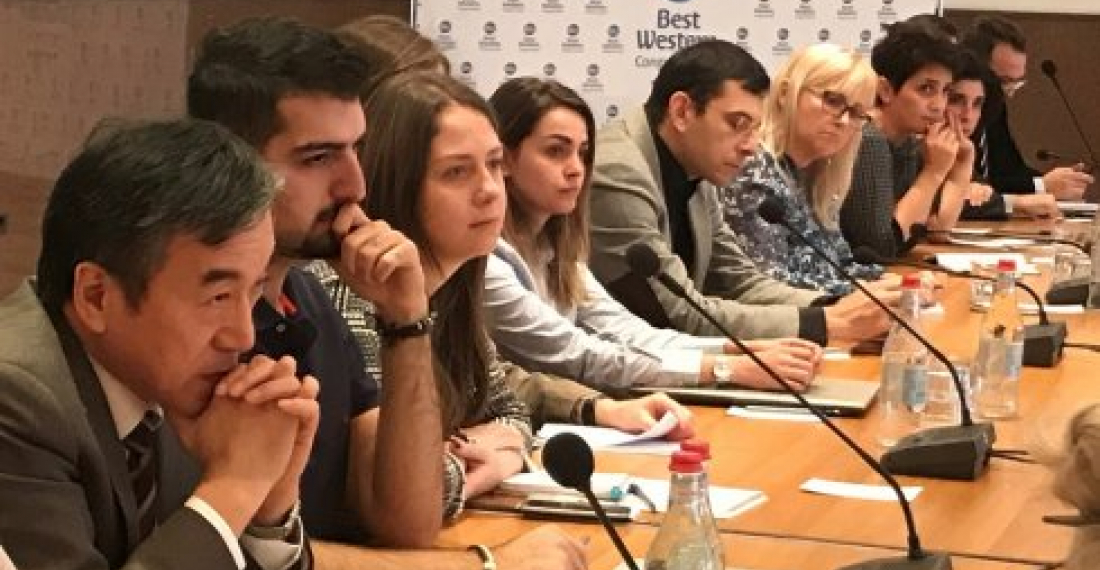The work of a recently established working group to help design, promote and implement ideas that can contribute to confidence-building in support of the process to peacefully resolve the Nagorno-Karabakh conflict was presented in Yerevan on Monday 16 October at an event hosted by the Regional Studies Center (RSC), an independent think tank in Armenia. The event coincided with the Armenian-Azerbaijani presidential summit held on the same day in Geneva.
Participants included the Armenian Human Rights Defender (Ombudsman), Arman Tatoyan, the Chairman of the Political Science Association of Armenia, Lt Gen Professor Hayk Kotanjian, the Ambassadors of Greece, Japan and Kazakhstan, and officials from the United Nations, the European Union and the International Committee of the Red Cross (ICRC). Also present were representatives from the Embassies of Bulgaria, Georgia, Germany, Lithuania, Poland, Romania and Ukraine, in addition to a group of Armenian graduate students, civic activists and young professionals.
RSC Director Richard Giragosian explained that the discussion was part of a broader effort undertaken by a recently formed "Working Group" comprised of Armenian and Azerbaijani members committed to "developing a ‘next generation' of ideas and measures that may impact positively the process of resolving the Karabakh conflict." The working group operates within the framework of the "European Partnership for the Peaceful Settlement of the Conflict over Nagorno-Karabakh" (EPNK), a European Union initiative.
Dr. Dennis Sammut, Director of LINKS (Dialogue, Analysis and Research) - one of the EPNK implementing partners - reviewed the specific aims of the Working Group, and highlighted the collaborative work to date to explore and study how confidence-building measures (CBMs) can contribute to lasting peace in the context of the Nagorno-Karabakh conflict through activity that helps build trust between Armenians and Azerbaijanis in the conflict area, in the wider region, and globally. He added that beyond this effort to develop ideas and suggestions on different CBMs, this meeting was also part of an outreach effort aimed at disseminating information on confidence-building measures among stakeholders, including through seminars and presentations in the region, through publications and through new media and social media.
During the meeting Richard Giragosian also introduced two other Armenian members of the Working Group, Dr. Benyamin Poghosyan of the Political Science Association of Armenia, and Ashkhen Grigoryan, an economist and analyst with the Regional Studies Center (RSC).
For more details on the Working Group and the scope of its activity see a recent report on commonspace.eu here
source: commonspace.eu
photo: Participants at a meeting on confidence-building measures in the nagorno-Karabakh context held in Yerevan on Monday, 16 October 2017 (picture courtesy of Regional Studies Centre, Yerevan)







